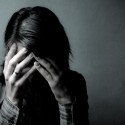Drug addiction: 'The true cost often ends in tragic loss of life'
THE death of Perry Fowler should remind us once again that the true cost of drugs does not always end at causing misery and fuelling crime but often ends in the tragic loss of life.
It also demonstrates that addiction knows no bounds and that drug misuse is not confined, as many would choose to believe, to areas of deprivation.
Perry Fowler, by all accounts, was a bright child from a good background. He was a promising weightlifter with the potential to compete at the top level and a promising artist who was offered a scholarship to a London art college. Yet he achieved none of these goals.
After receiving a savage beating as a teenager his life changed. He largely withdrew from the world and from the age of 14 sought solace from his pain by experimenting with drugs.
Despite the intervention of his parents Debbie and Keith, who attempted to get him treatment and counselling at an early stage, they were unable to halt his downward spiral.
Ten years after they first identified he had a problem, they will tomorrow bury their son who died last week after accidentally overdosing.
Perry’s tragic story is one that will affect and worry every parent at a time when there is evidence of growing drug misuse in the Lothians.
Police are to some extent correct in claiming that they are winning the fight against drugs.
The number of seizures made locally has soared by a third in the past year, with the amount of cocaine and ecstasy confiscated having doubled.
But despite recent successes there is no evidence that the supply of class A drugs – including crack cocaine – has in any way diminished, and the death toll continues.
Earlier this year it was revealed that a dealer is arrested on average every five hours in Edinburgh, with more now caught in the Capital than any other part of Scotland.
The latest figures available for the Lothians show that there were 46 drug-related deaths in the region in 2006 – most involving heroin, morphine or diazepam.
Perry Fowler’s family are not looking for anyone to blame for their son’s death. They accept that the responsibility is his alone, but today they say they believe the best way to tackle drug addiction is to increase the amount of help and treatment available for those caught up in the circle of addiction.
They may well be right, for experience shows tougher jail sentences for dealers in isolation are not the answer. When one dealer is removed from the streets another quickly moves in to fill the gap.
________
source: The Scotsman, http://news.scotsman.com

